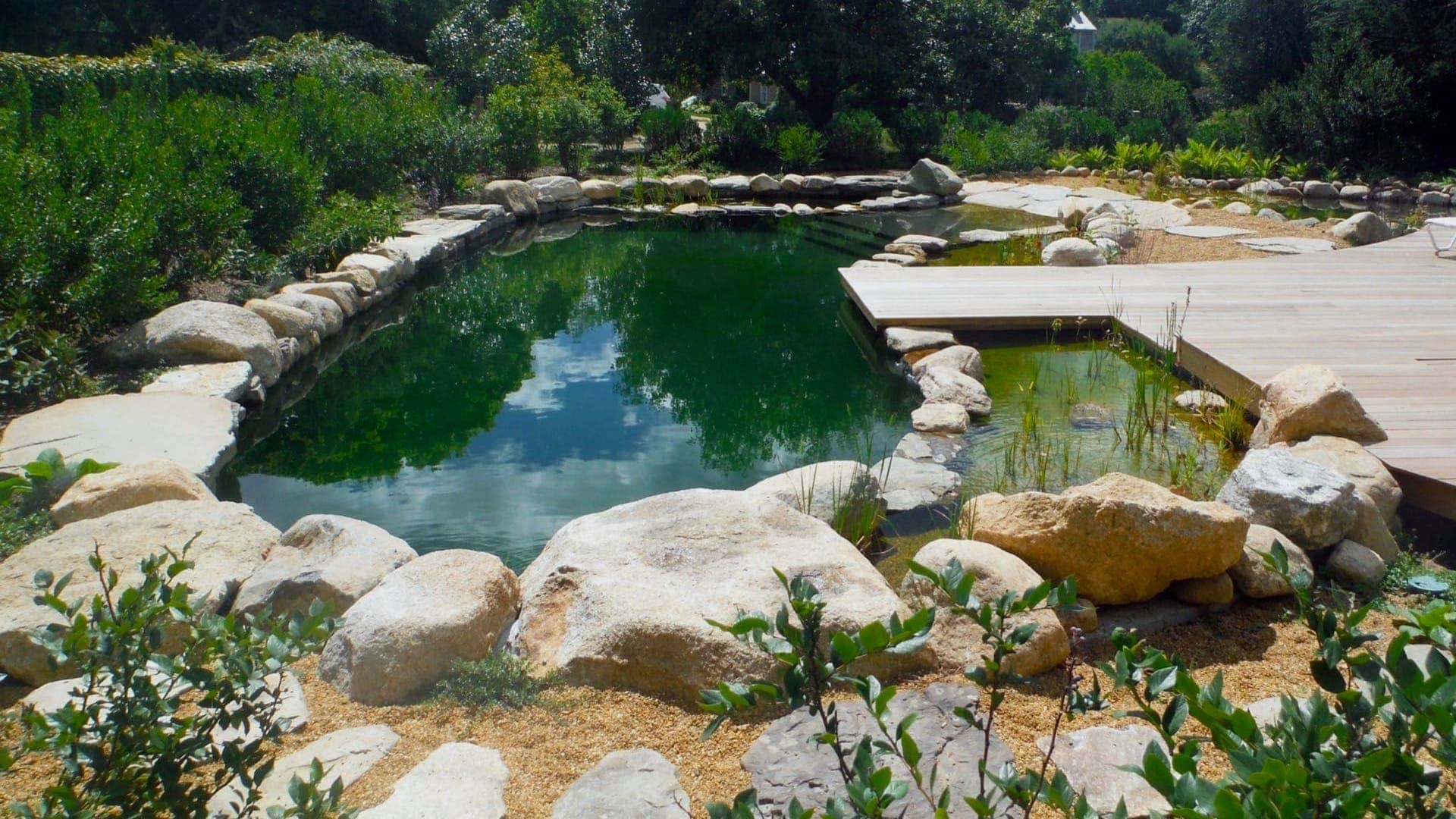By Sean Zucker –
There’s nothing quite like spending summer poolside. Whether it be inground, above ground, indoor or outdoor, pools have long been a popular solution to the season’s brutal heat. However, this year many are seemingly taking a different approach to taking a dip, all in hopes of avoiding potentially harmful and harsh chemicals that come with traditional options.
The new swimming magnet is called a natural pool and its popularity is skyrocketing following a pandemically produced shortage of traditional backyard options. Following a surge in demand for pools during last summer’s lockdown, not only did waiting lists for in-ground pools grow, but a chlorine shortage also developed. The chlorine squeeze actually led homeowners to start looking for new at-home dipping options—namely natural pools, The Wall Street Journal reports.
“Prices are going through the roof on chlorine tabs—if you can even find them,” Christopher Paquette of Robin’s Nest, a natural-pool company in Buxton, Maine told the WSJ.
“Not to be confused with a pond, a natural pool is a greener alternative to a typical chlorinated swimming pool,” Forbes notes. Rather than using chlorine and other chemicals to keep the water clean, natural pools rely on plants to filter the water.
One major requirement, though, is an awful lot of space. Natural pools require two areas to support themselves. One for swimming and one for regeneration, both similarly sized. The regeneration section is shallow, filled with water, crushed gravel and aquatic plants with pumps and tubing circulating the water for the swimming area through the regeneration zone, where it is cleaned naturally.
Also known as bio pools, this eye-catching option is environmentally-friendly and far less expensive to maintain. While installation costs are roughly 10 percent higher than chlorine pools, upkeep is vastly less involved and pricey.
“The energy costs for a natural pool are one-half to one-third of a traditional pool, from $35 to $50 a month, and there are no chemical costs,” The Wall Street Journal reported. “Natural pools can be made of a rubber membrane or gunite, and pool sides may be lined with river rock or special sandbags. Ladders, heaters and diving boards can be added, but pool covers aren’t needed and the water doesn’t need to be drained annually.”
Regardless of demand or availability, is avoiding chlorine a good idea because it is potentially harmful? In short—yes, it can be, especially for those who are particularly sensitive or who might be taking a dive into an overly spiked pool.
The Centers for Disease Control and Prevention (CDC) warns that exposure to higher levels of chlorine may result in changes in breathing rate, severe coughing and damage to the lungs. Additionally, even contact with only low levels of chlorine can still result in nose, throat, and eye irritation.
The Untied States Environmental Protection Agency (EPA) adds that chlorine is a potent irritant to the eyes and upper respiratory tract, extremely irritating to the skin with the ability to cause severe burns, while animal tests in rats and mice have shown chlorine to have high acute toxicity via inhalation.
But what’s it like to actually swim in one of these chemical-less holes in the ground? “It’s like swimming in a crystal-clear pond with a wonderful greenish hue,” one buyer told The Wall Street Journal.
The water does tend to be on the greener side given the roots of aquatic plants, such as water lilies, and materials like gravel that create a naturally occurring ecosystem with biofilms within the regeneration zone.
Ultimately, for those wanting to sidestep a long line and fresh skin conditions, it might be worth going au naturel.













